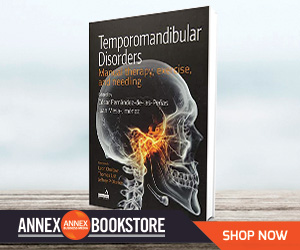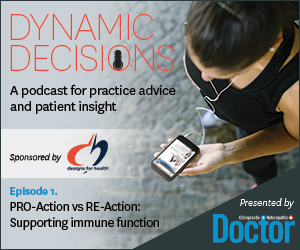| |
| |
 |
 |
| |
 |
|
@{mv_date_MMM d, yyyy}@ |
|
| |
A neuroscientist’s hot pink arm cast led the discovery of previously undetected neuronal pulses in the human brain that activate after an immobilizing illness or injury.
» Read more...
The risk of severe COVID-19 infection is more common in those with high blood pressure, diabetes and obesity, conditions that are all associated with changes to the composition of the gut microbiome — the community of bacteria, viruses and fungi that live in the intestines. This raises the question of whether the gut microbiome has a role in dictating COVID-19 severity.
» Read more...
Where you live has a significant impact on the likelihood that you will reach centenarian age, suggests a new study. New research suggests that people who live in highly walkable, mixed-age communities may be more likely to live to their 100th birthday.
» Read more...
|
| |
|
| |

An authoritative and comprehensive account of the assessment and conservative management of temporomandibular disorders. Recent emphasis has been on ‘evidence-based practice’ at the expense of the clinical reality which should also take account of clinician expertise and patient preference. A sound research base is not always available. This text addresses the clinical reality of having to make decisions using other sources of knowledge in the absence of a comprehensive scientific rationale. It advocates clinical and evidence-informed practice – an approach which acknowledges the value of clinician experience and expertise as well as research findings.
>> Order now |
| |
|
| |
 Let’s start with an experiment: If you can touch your toes, find someone who can’t. If you can’t, follow along. Stand with your legs together and flex forward, taking note of how far you can reach. Now, stand straight again, but this time, push the tip of your nose down gently one time and bend forward again. You were more likely than not flexed further by a substantial margin than you did the first time. While no one knows exactly why this works, this is part of a collection of very consistent mechanisms to influence how the brain can turn muscles on and off at whim. This is a typical example of the power of functional neurology.
» Read more...
Let’s start with an experiment: If you can touch your toes, find someone who can’t. If you can’t, follow along. Stand with your legs together and flex forward, taking note of how far you can reach. Now, stand straight again, but this time, push the tip of your nose down gently one time and bend forward again. You were more likely than not flexed further by a substantial margin than you did the first time. While no one knows exactly why this works, this is part of a collection of very consistent mechanisms to influence how the brain can turn muscles on and off at whim. This is a typical example of the power of functional neurology.
» Read more... |
| |
|
| |

Join Editor Jannen Belbeck, and Functional Medicine Specialist Victoria Coleman (HBSc, DC, MSc, IFMCP) for a discussion surrounding supporting immune balance for patients – sponsored by Designs for Health. Within the discussion, we address:
- Why should both DCs and NDs (and other healthcare professionals) know about immune support, and what's a baseline they should know or acknowledge with patients?
- Immune boosters vs. Immune support: The importance of language and avoiding buzzwords when speaking to patients.
- What are the best options healthcare professionals can suggest for their patients to support their immune systems? (We discuss both lifestyle factors, and supplementation for patients.)
All this and more,
coming soon! |
| |
|
| |
|
|
| |
| |





